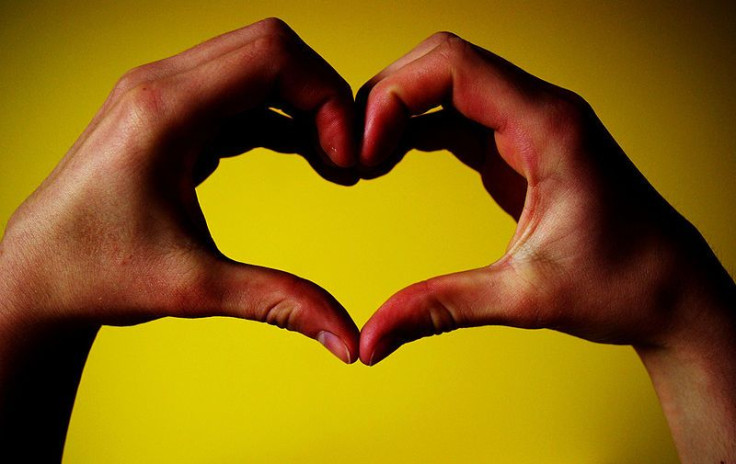The Science Of Love: 5 Recent Studies Reveal The Secrets Of Intimacy, Attraction And Relationships

Love is like a Rubik’s Cube – complicated, full of twists and turns, and bound to cause a few hand cramps. The good news is there are scientists out there using sophisticated models, extensive equations and probably some beakers to help solve mankind’s greatest mystery, the human heart.
As Valentine’s Day approaches, we thought it appropriate to put together a brief list of the latest findings in the science of love. Here’s what we’ve learned lately about the psychology behind intimacy, attraction and relationships.
1. Men are more wired for promiscuity than women. A study of 1,314 British adults found that 57 percent of men were more likely to forgo commitment in favor of sleeping around, compared with 47 percent of women, according to a paper published in the journal Biology Letters. Researchers found that the length of one’s ring finger compared with his index finger, something known as the “2D:4D” ratio, correlated with how promiscuous a person might be. The ratio has previously been shown to indicate the level of testosterone to which a person was exposed in the womb.
Scientists argued that from a Darwinian standpoint, having more sexual partners boosts the likelihood of passing on one’s genes. But before you go measuring fingers, know that researchers also concluded that life experience and cultural norms, not genetics, played a bigger role in sexual behavior.
2. There are 36 questions to ask someone in order to create intimacy. The idea that a bond can be created between strangers by asking the right questions was popularized in the late 1990s with a study called “The Experimental Generation of Interpersonal Closeness,” but was recently given new attention in an essay in the New York Times’ “Modern Love” column as well as an app. The idea behind the study was that two people meeting for the first time could become close quickly by being vulnerable with each other.
The questions include things like: What is your most treasured memory? What does friendship mean to you? What would constitute a “perfect” day? Given the choice of anyone in the world, whom would you want as a dinner guest?
3. If your name starts with a letter between A and M, you’re more likely to find love online. Researchers in the U.K. looked at who’s been successful and who’s failed at online dating and discovered that people with names beginning with a letter in the first half of the alphabet fared better than people whose names were toward the end (look no further than Angelina Jolie and Brad Pitt for proof.)
"Perhaps we subconsciously give higher value to things that appear to be at the top of the pile," Khalid Khan of Queen Mary University of London told the New York Daily News.
Researchers also found that screen names of a playful nature – LovelyLexie, FunFrank – were more attractive than names with negative connotations – BadBoyBrad, ShortSally.
4. For the longest-lasting love, the key is oxytocin. The hormone that goes by plenty of nicknames – cuddle chemical, moral molecule, hug hormone – is made in the brain and helps regulate emotions like sympathy. Studies have shown that men who were given oxytocin felt more intense emotions, communicated better during conflict and smiled more.
5. In the digital age, emojis are a must. Fifty-six percent of Americans show affection by sending emoticons, according to a recent survey by Cricket Wireless. Science has shown that mobile phone users respond to emojis in the same way they do to real human faces and actually affect the brain in the same way. That means a winking face emoji sends the same signal to the recipient’s brain as a real-life wink. Dating in the digital age just became so much easier!
© Copyright IBTimes 2024. All rights reserved.






















